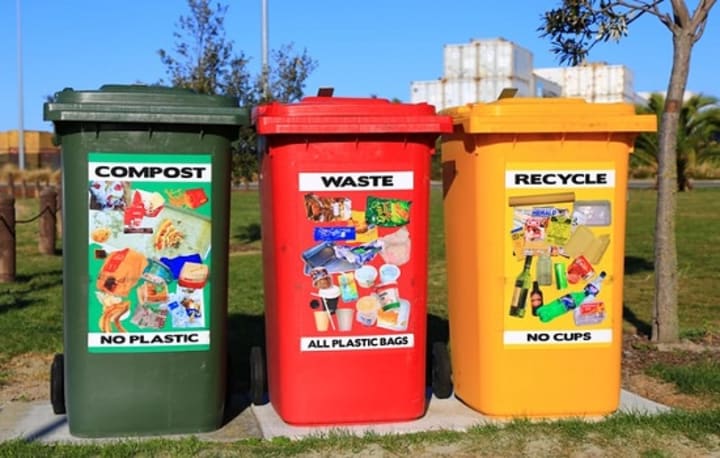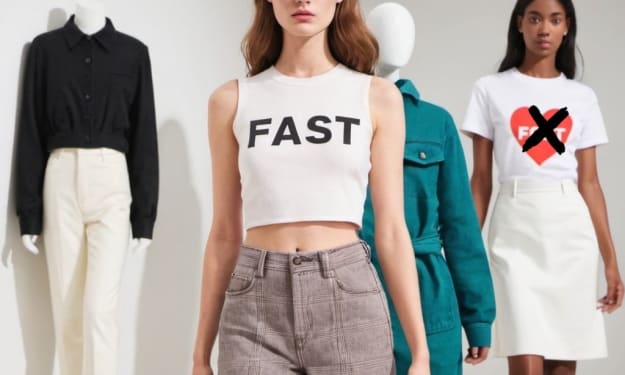3 Ways You Help the Environment When You Wear Ethical Fashion
Helping the Environment with Ethical Fashion

Ethical and sustainable fashion is a recent movement that was born from the recognition that we need to be conscious about how we affect the planet.
In order to slow global warming and provide future generations with a continuance of rich natural resources, we need to focus on ethical and sustainable practices. However, ethical fashion is not everyone’s top priority. “Fast fashion” is competing for the market with synthetic and cheaply made clothing that follows the rapidly changing trends. Fast fashion is also very affordable, making it popular all over the world. The next time you shop for new clothes, think about these three ways that ethical fashion helps preserve and improve our environment.
Sustainable Materials to Preserve Resources
Fast Fashion
Fast fashion and many of the clothes you will find at Big Box stores are produced with synthetic chemicals and polymers like polyester, rayon, and spandex. These clothes are cheaper, available everywhere, and can be quick-drying and wrinkle-free, but they are not made to last. They quickly grow bacteria, which causes them to hold foul smells, and they wear out fast. For many people, this doesn’t bother them because the clothes come at such an affordable price. Few realize that these clothes can take up to 200 years to decompose. And every time we wash them, synthetic fibers, or microplastics, break off. These microplastics may work their way into the oceans, ocean life, and eventually into the food we eat.

Benefits of Natural Materials
Natural materials that need minimal processing are the base of ethical and sustainable fashion. Materials like organic cotton, hemp, linen, and bamboo are typical in this industry. For example, bamboo is used in construction, housewares, clothing, and more. It’s super fast-growing, doesn’t need fertilizer to thrive, requires less water, and self regenerates from its roots after being cut. For these reasons, many people consider bamboo clothing to be an environmentally positive substitute for synthetics. Natural materials often use fewer chemicals in manufacturing processes, last longer than synthetic fabrics, and may also contain antimicrobial properties that prohibit the growth of bacteria. This keeps them smelling better and a functional part of your wardrobe.

Reducing the Carbon Footprint
For a company to reduce its carbon footprint, its efforts can go far beyond choosing fabrics that need fewer chemicals in processing and producing less harmful emissions in manufacturing. You might not think about how much traveling your t-shirt did to make it to a shelf near you, but it could have been substantial. Let’s say the polyester fabric for your t-shirt was produced overseas in India, flown to China to be sewn and screen printed. Afterward, it was then flown or shipped to America for consumers. After entering America, it needed to be transported by truck to its final destination.
Ethical fashion companies often pride themselves on using a limited supply chain to reduce carbon emissions. Some still source their fabrics from overseas, but manufacture them in their own factories, while others keep their entire supply chain local. They strive to have minimal fabric waste when producing garments, so fewer scrap materials end up in our landfills. You can even find ethical clothing companies that have recyclable garments that can be repurposed into carpet padding, rubberized playgrounds, and materials for the automotive industry. Blue Jeans and Go Green are examples of organizations that recycle denim into housing insulation.
Decreasing Packaging Waste
Heightened Online Shopping
If you’ve ever shopped through Amazon, you may have thought that they use a lot of packaging materials. Sometimes you receive a box within a box and think, was that really necessary? You may have also received a box filled with plastic bubble padding, which just adds to our landfills. As these products decompose, they release harmful chemicals into the earth and air which affects all living things, including us. Since the start of the pandemic, people have ramped up their online shopping for many goods, including clothing. The year 2020 has seen a dramatic increase in the amount of packaging each person receives through the mail.

Compostable Packaging
A big selling point for many ethical fashion companies is offering minimal packaging, recyclable packaging, and utilizing paper that is made from recycled materials.
Recycled boxes for mindfully made chic women’s clothing, accessories, jewelry, and more are also a current trend for ethical clothing companies. Compostable packaging is made from plant-based or fossil fuel materials that actually provide the earth with nutrients as it breaks down. So yes, you could throw it in your compost pile if you wanted, though you should always check the instructions on how to dispose of it.
Reusable Packaging
Many ethical fashion companies have also turned to reusable packaging options. They may give you free postage to send the package back through the mail, and some even offer incentives to do so. The company RePack, for example, has designed a package that is adjustable to three different sizes and can be used at least 20 times. Other types of reusable bags include ones that you receive your goods in and can then repurpose to organize things in your home.
On top of preserving our natural resources with sustainably sourced materials, reducing the global carbon footprint, and decreasing the amount and toxicity of waste that enters our landfills, some companies also often practice ethical work habits like fair wages and safe work environments for their employees. Ethical and sustainable clothing is new and scarce in the market, but it is ever-increasing in popularity with new generations. Hopefully, in the future, it will soon become the standard, and not something rare and obscure. Mother Earth needs all the help she can get to stay the beautiful place that she is for generations to come. Next time you’re shopping for clothes, choose an ethical and sustainable clothing company that strives to make a difference in the industry.
About the Creator
Tess DiNapoli
Tess DiNapoli is an artist, freelance writer, and content strategist. She has a passion for yoga and often writes about health and wellness, but also enjoys covering the fashion industry and world of fitness.






Comments
There are no comments for this story
Be the first to respond and start the conversation.